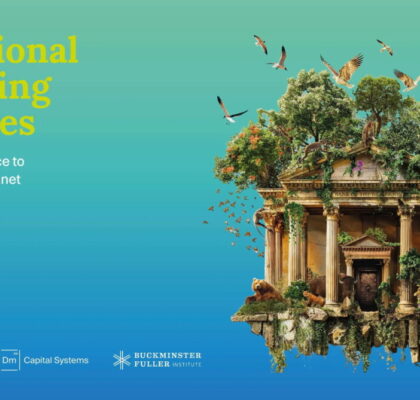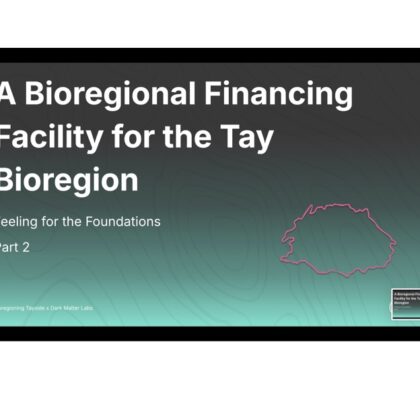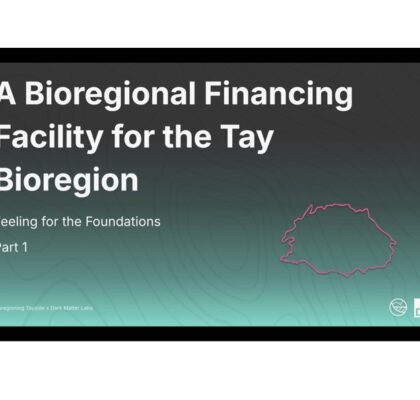Across Tayside, there people who are already acting in bioregional ways to bring human and the biotic communities back into a healthy, balanced co-existence with each other. In this blog post, Bioregioning Tayside caught up with one of them, Angler and Ecologist Duncan Pepper, to find out more about his story.
Can you tell us where you are based in the Tay Bioregion?
I’m based in Aberfeldy.
Can you talk a bit about yourself or your group, what you do and the journey you have been on to get to where you are today?
I’ll answer this first from a personal perspective and then talk about a group that I’m involved in setting up. I run a small company, called Fishinguide, taking people, mostly tourists, on guided fishing trips. I have a strong family background in keen observation of nature. My father would foster my interest in anything natural outdoors and I’m lucky to have grown up on a non-intensive farm where, for the most part, natural processes were allowed to do their thing. This led to a desire to be outdoors as much as possible and after studying biology and travelling for a few years, being a fishing guide seemed to be a good fit for me. Eight years in it’s going very well and, to be honest, it surprised me with its popularity.
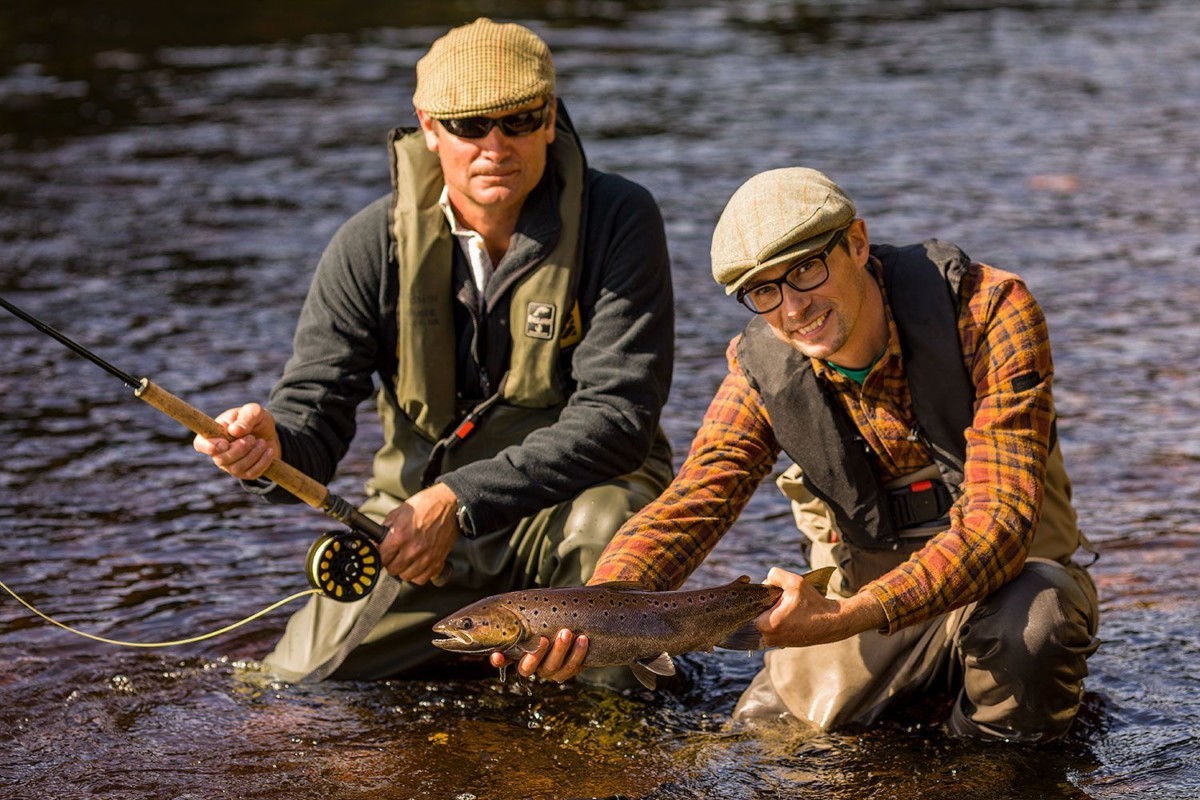
Duncan (right) plus fish and client, Photo courtesy Duncan Pepper
I see Fishinguide as a hook to get people to enjoy and as a result care for the natural world. The intention is to maximise the enriching effect rivers, lochs and their surrounds can have on people by trying to help them take the time to slow down and observe all the wonderful, entrancing things. So we lead from fish to their food – insects – and from insects to trees and so on to the interconnectedness of everything, if the client is willing. As a guide I try to make sure I talk about what we see when we’re out, and ideally a wee story about it. These things might be animal tracks or a bird or fungi or whatever we come across – there’s always something.
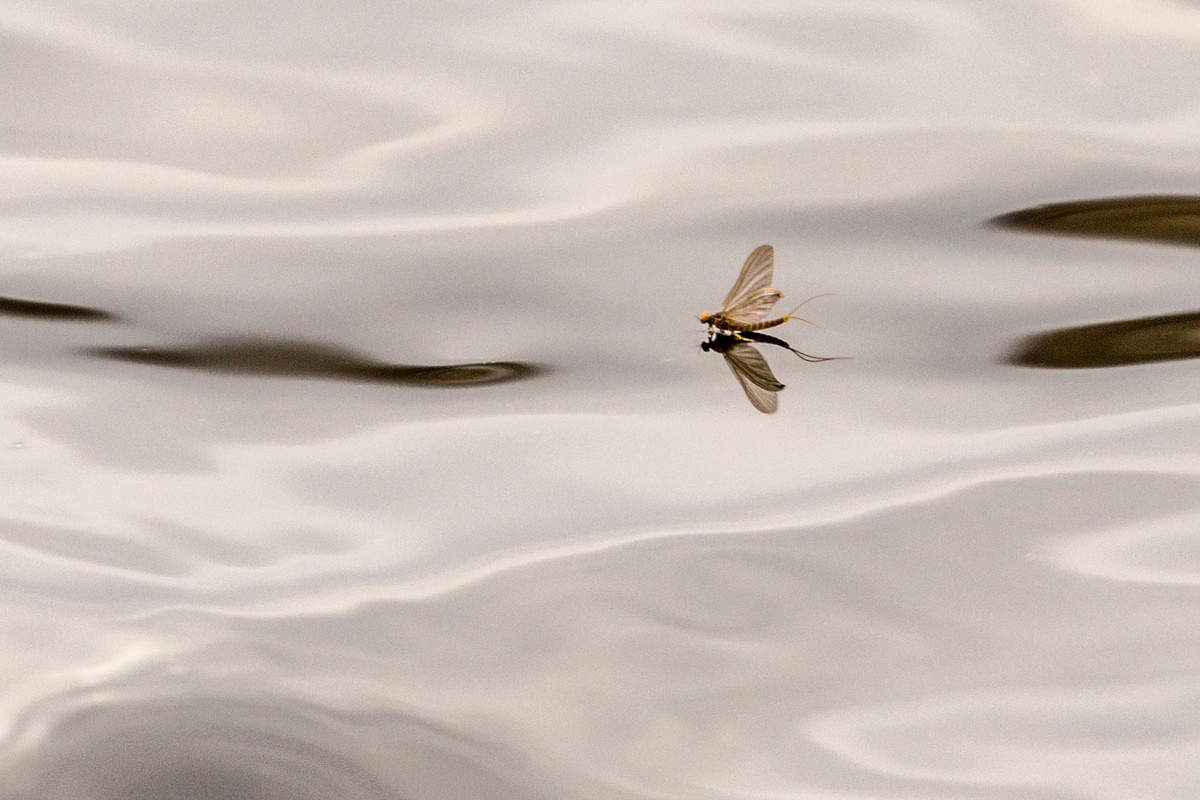
A Large Dark Olive fly in peril, Photo courtesy, Duncan Pepper
The group I’m hoping we’ll manage to get off the ground is a much needed caretaker for the ecology of the River Tay. It will perhaps become known as the Tay Catchment Trust and will take on tasks such as species monitoring in the river and surrounds, habitat restoration to make the river more suitable for more life, and community involvement to have the folks that live nearby love the river and understand its needs.
What has been the inspiration or motivation to do what you do?
Largely it’s my late fathers influence. He was my hero as a boy, and still is. I’m lucky enough to have been exposed to his expertise in animals, plants, fungi, soil, land use issues, forestry practice, and the challenges that Scotland’s ecology faces. This has been helped along by having friends who work as biologists and ecologists and a wife who works in river restoration.
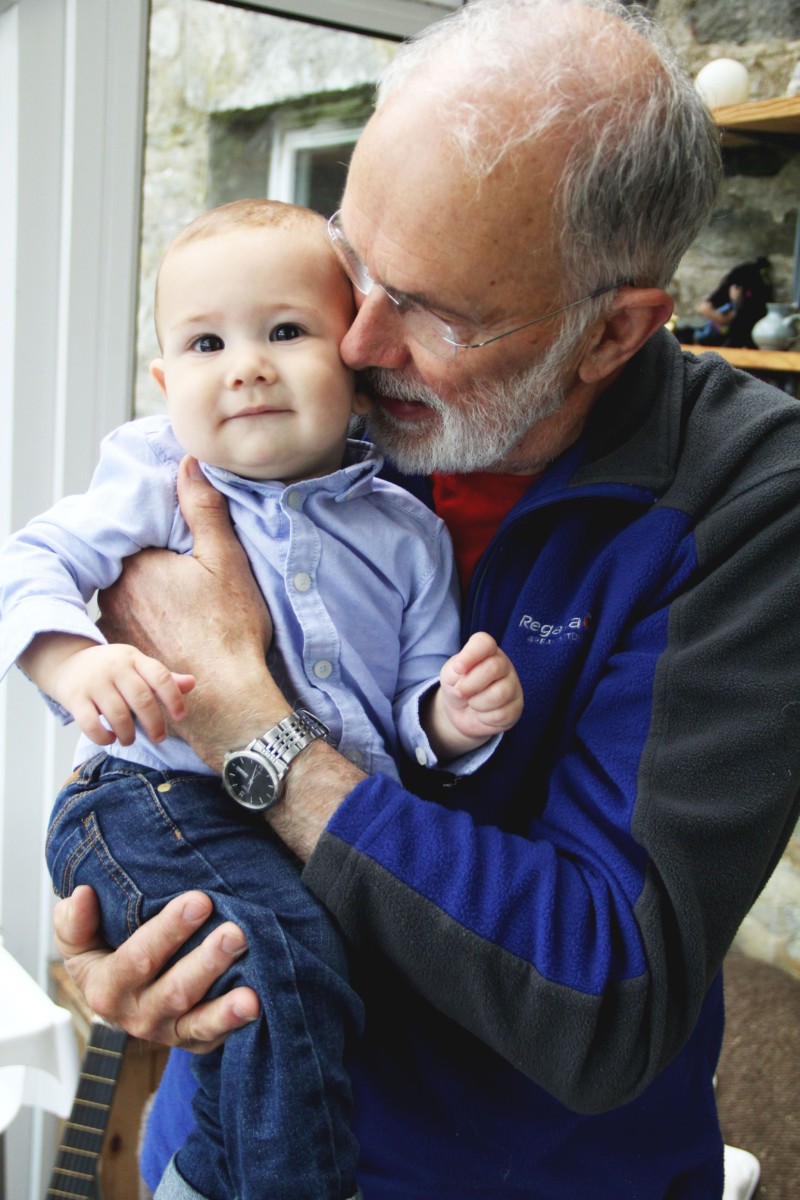
Duncan’s Dad with Duncan’s son Hector, Photo courtesy Duncan Pepper
What kinds of expertise or skills do you have or have learned that help you in what you do?
Probably it’s my observation skills and enthusiasm that serve me best as a guide. Observation is very important if you’re to tune in with what’s going on. That might be noticing what kind of insects the trout are feeding on which might be done by recognising the rise form of the trout as being splashy (likely their feeding on caddis if it’s late in the summer) relaxed and slow (probably dead upwings) barely touching the surface but causing a boil (possibly chironomid emergers) or by simply seeing the insect itself. These indicators all lead to other understandings of what’s going on in the ecosystem and it’s an endless process of learning and enjoying. My enthusiasm helps me infect the guests with a passion for nature.
As a fly casting instructor what has helped me is a fantastic course I did called the SGAIC (Scottish Game Angling Instuctor’s Course) and especially a technique where you train the person learning to cast to see their own casts without judging them. The critical self can really get in the way of productive learning, judging things as bad makes us tense and then our casts get worse. So the technique is to distract this ‘critical self’ while allowing the ‘doing self’ to simply do it. There’s a book called ‘The Inner Game of Tennis’ by W.T. Gallway which describes this technique much better than I can.
How would you describe your relationship to your place and to the natural world around you that you live and operate in?
It’s everything. Aside from human relationships all my recharging or richness that I get from life comes from my relationship with the natural world. In a place dominated by natural processes I relax and become a child eager to discover new things. The flowers of blackthorn, the prints of a toad, the discovery of seldom seen mushroom or sometimes just light on the water can put me in my own state of rapture or ‘satori’. I don’t need such things everyday but I do need fresh air, exercise and some moment of appreciation of my surroundings. Growing up on the farm and spending many days working on the ground meant I connected with the soil, the trees, the wildlife and the system in a way which makes me feel part of it. I’m the land’s student and simultaneously it’s guardian. It’s a symbiotic mutualism. It sounds woo woo, but I feel we need each other.
I like that my chosen line of work requires me to be tuned in with all the environmental variables in river height, turbidity, season and time of day which leads to discovering what those things mean for fish and insects. Nature’s clock becomes increasingly important in what I do with things like the flowering of broom making me reach for my yellow mayfly box.
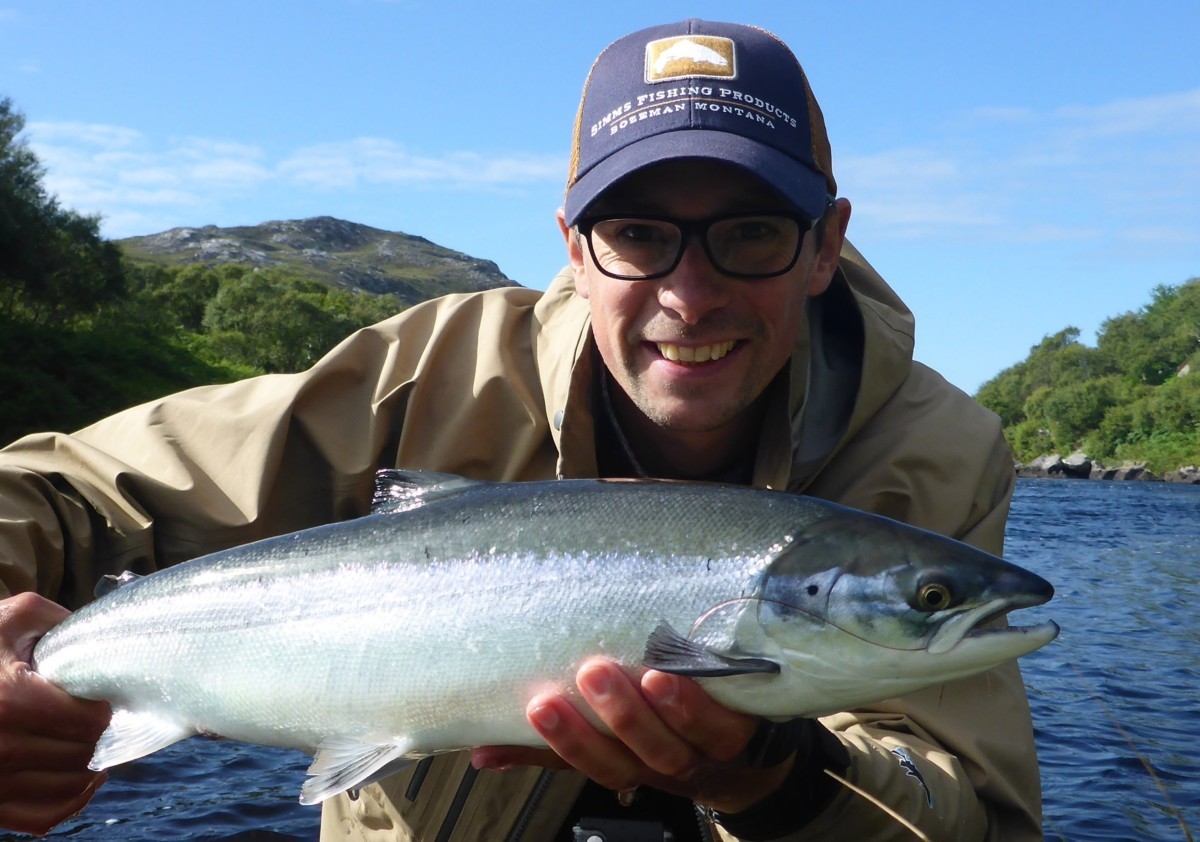
Duncan with a Salmon, Photo courtesy Duncan Pepper
We are still enduring this terrible Covid crisis and I wonder if we could talk a bit about the other crises that are now front and centre in all our lives – the climate and biodiversity crises. How are they informing what you do? How are they impacting you or the way you think about what you do?
There isn’t really anything new here, both the climate change and biodiversity crises have been around for decades and are worsening year on year. I’ve been hearing about it from my father and his friends since I was a very small boy. It is however very useful that most people in the country are starting to recognise the seriousness of what we’re facing. I have never before felt the groundswell of interest and the obvious shift in the opinion of what seems to now be the majority of the population. I’ve been around people all my life who were pioneers in the rewilding scene and their rhetoric hasn’t changed for at least 30 years, but now it would seem the country is listening. I’ve been interviewed multiple times in the last year on various ecology related themes, which had never happened before, and I’m getting very little push-back these days. In the past blog posts I’ve written have created a fair bit of heat for me from those with what I’d describe as a more Victorian approach to land/river management. Even the anglers who, let’s face it, aren’t known for being the most forward thinking ecologists, are mostly moving into the light.
These crises have long informed what I’ve done, so there isn’t really any change now. Though as the conversation becomes more mainstream and new opinions challenge it or add to it I find I’m allowed the opportunity to reassess and build upon my intentions of minimal environmental impact and maximum environmental benefit.

Big brown Trout, Photo courtesy Duncan Pepper
Are there top priorities around these crises that you think everyone should be focusing on?
If you’re offering me my genie I’d like 10 wishes please.
- make muirburn illegal immediately
- ban aquaculture in anything other than closed containment fish farming
- ban dredging for scallops – or for that matter – any dredging
- give SEPA and SNH teeth so that those that flout the law are discouraged from continuing, something more like the American DNR approach.
- leave our kelp forests in peace, no harvesting of kelp
- get our deer numbers down to 3 per square km
- all replanting of forestry plantations should be 70% native
- set up real national parks on land and at sea that act as wildlife refugiums, where ecologically degrading practices (muirburn, feeding deer, dredging, trawling) are banned
- set the maximum land mass in any one sale at 1000 acres, so splitting up the big estates into more diversity of ownership
- help farmers move from monoculture to permaculture within the next 5 years
The biggest issues as I see them are high deer numbers and muirburn on land and dredging and fish farming in the sea. Though subsidies for sheep, help buying trawlers and plans to harvest kelp should also be binned ASAP.
How do you feel about the future in the light of these crises?
Mixed. Never before have so many people been making noise about these issues so that makes me feel positive, however it may be too little too late.
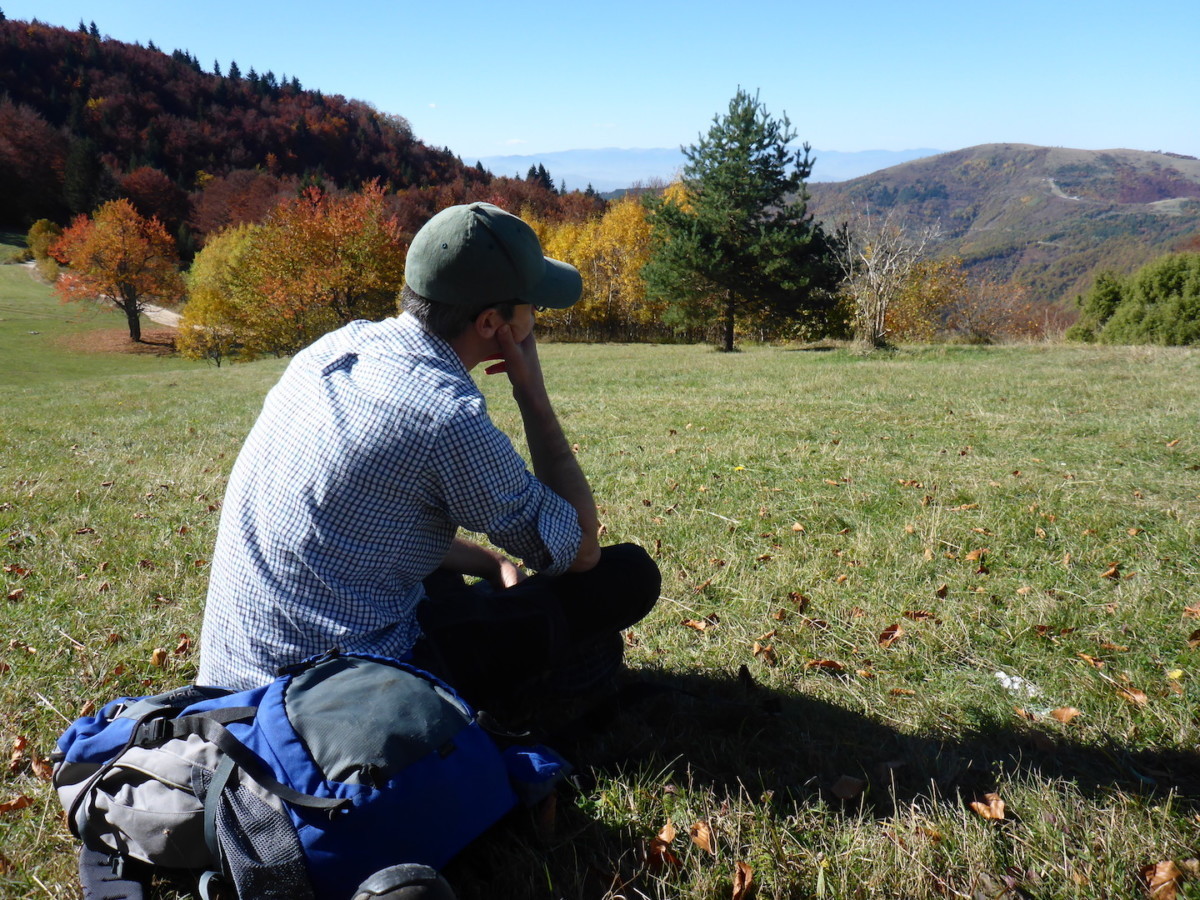
Duncan contemplating. Photo Courtesy Duncan Pepper
Who do you draw inspiration and guidance from? Are there people showing great leadership in your field?
Mike Daniels and David Balharry at JMT, Tom Edwards who runs 3E Services, Rick Worrel the forester/ecologist, Alan Kettle White at the Argyll Fisheries Trust, Thomas MacDonnell and Ronan Dugan at Wildland, James Wallace at the Beaver Trust, Sean Dugan at the fish lab in Pitlochry, Alan Crawford at The Woodland Trust and all the folk at Scotland: The Big Picture are doing great work and forwarding the ecological restoration scene to Scotland’s considerable benefit. Corin Smith, a fellow fishing guide, is also making impressive progress in the battle against the fish farm giants.
What does “community” mean for you and what you do?
I think community will become more and more important – if we move as we need to move – towards recovery. Community should, in my utopia, be where your children are raised, where all your food comes from, where co-operative work groups join to build houses for those who need them etc. I’d like to live more communally. I’d like to have help looking after my two kids under 4 now, and to look after other peoples’ babies, toddlers and kids as mine grow up. I’d like to be part of a work group of friends that manages forests or land for maximum biodiversity as well as human benefit and I’d rather not be paid for it. Money, especially when it’s related directly to time, can get in the way of enjoyment.
Can you talk a little about the networks that you are part of that support you in what you do?
I’ve recently joined the Northwoods Rewilding Network which aims to bring together the people managing small areas of land with big ambitions for rewilding. These small holdings will do their best to promote biodiversity and over time act as seed sources and species dispersal to surrounding land. It an exciting new project and our wee farm of Upper Brae is honoured to be one of the twelve founding partners. There is support as a fishing guide offered by those that taught on the SGAIC course, but I have never dipped into it.
Do you see a need for more cooperation between networks? What might that look like?
Holistic visions and frameworks for management of Scotland’s land and water are much needed. I would like Scotland to have a course for anyone who wants to fish. There are certain times of year when fish are very vulnerable to overexploitation. Charr are a good example of this. The whole charr population collect in one tight school in relatively shallow water during spawning and a single angler might catch 100 or more in a day’s fishing. This might be half of the whole loch’s population. There are lochs where charr no longer exist as a result of overexploitation during spawning. With a little education this could be avoided. Also proper practice catch and release needs to be comprehensively understood by anyone angling. Though it should be said that for the most part angling has an insignificant effect on fish populations.
Is anything you do affected by local or national political policies?
Much of what I plan to do is based on their not being suitable policies to protect Scotland’s ecology Are there things you would develop or love to do if resources were unconstrained or managed differently? It would be great to have a decent primary school education system for ecology. Where kids learn the importance of how they treat the soil, air and water and how different practices affect these building blocks of life. I’m talking with the head of Aberfeldy nursery now about teaching the little ones about soil. Starting with worms in a viewing tank in the classroom, they can add leaf litter and food scraps and see how worms make soil. From there we can go out to visit sites and do some citizen science. One idea is to compare intensively grazed sheep pasture to native woodland for its soil structure and ability to absorb water. It can be done very simply and visually. So I suppose it would be helpful to be supported in that.
Making films about the effects of our actions is also something I’d like to do. I have lots of ideas. Specifically around land use and the way it affects rivers and also the fish stocking issue. Animated films would get the point across very effectively I feel. I would like to spend two day a week guiding or teaching, two days a week working with others on eco-sensitive forestry, farm work, river restoration, building or other physical labour and three days a week playing with my family.

Duncan & family, Photo courtesy Duncan Pepper
In your journey to where you are now has there been a particular ‘OMG’ or ‘aha’ moment that really shifted your thinking or energised you to take action in some way?
I suppose it’s the feeling, which has come on gradually, that I have something to offer when it comes to Scotland’s ecology. I recently spent two weeks on Islay with a young and very promising ecologist called Gus Routledge. I was telling him how surprisingly confident he appeared to me, despite his tender age of 23, when it came to his opinions on ecological processes. I had always been much more reticent about expressing my opinion. Gus’ entry to this world was as a keen birder and botanist and then he spent a year as a ranger at Loch Leven reserve. So his role was very quickly that of ‘he who informs the public on matters of ecology’ (a role which he does very well I might add). Whereas I had spent my life present but not contributing to continual conversations on ecology amongst the ecological top brass of the time. My fathers shoes were far too big to ever consider filling, he seemed to know so much, and his insights were so deep, as were those of his peers. I knew where I stood, but gradually I’ve realised that my experience is a unique one and of value to the current conversation. I can’t be accused of being an outsider, or of not understanding the ‘countryside’. The farm is where I grew up, the land use is very mixed to give a taste of many ways of managing, and I worked on it whenever I wasn’t at school. I’m also an angler and an ecologist. I have farmed sheep and shot deer and managed land. I’ve fenced off areas from herbivores and seen what happens in their absence. I’ve worked on river restoration projects and various ecological surveys. I also have a bit of foreign context to put Scotland in. I will never know it all, but it’s now unlikely that I’ll have the wool pulled over my eyes on matters of Scotland’s ecology.
